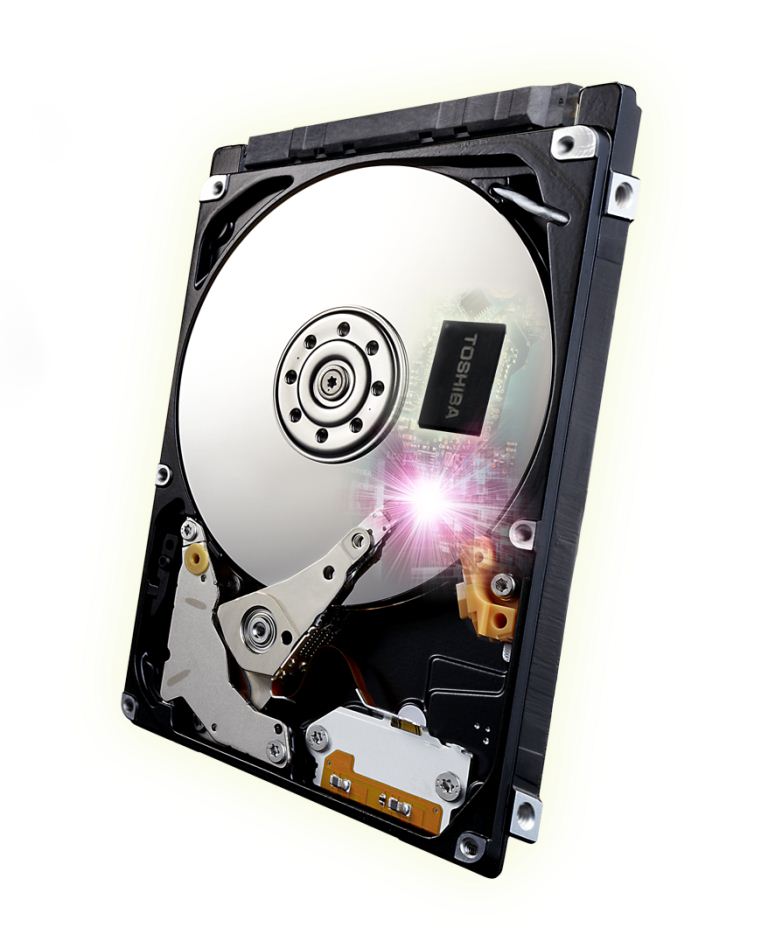Back at the Flash Memory Summit in August, we had the opportunity to see a mock up of a Toshiba hybrid HDD/SSD solution. Whether or not the drive would go into production was unclear at the time, but the Japanese company announced today that it intends to go forward with the design. Toshiba, which makes NAND flash, SSDs, and conventional rotating media has combined the two disciplines to create what they hope will be a superior solution to Seagate’s Momentus XT. Toshiba’s forthcoming MQ01ABD uses 8GB of SLC flash to cache 750GB or 1TB HDDs in the attempt to offer HDD-like pricing with SSD-like performance.
The Toshiba MQ01ABD is a dual-platter 5400rpm HDD built in a 9.5mm z-height, 2.5″ chassis. The drive will start off as an OEM drive for laptop manufacturers, but could eventually become a retail product.
HDDs are good at large sequential transfers, like video, but are hamstrung by the small random accesses that make up the majority of IO in modern systems. Combining SSD and HDD technology together gives a more balanced performance profile. While not as fast as a SSD, the Toshiba hybrid should be fast enough to handle Intel’s Ultrabook performance requirements which call for storage systems faster than traditional hard disks.
Caching is handled by 32nm Toshiba Toggle SLC on a package consisting of four 16gbit (2GB) NAND dice. The latter is important, as the more NAND die to access in parallel, the better performance becomes. As the drive’s controller detects which areas of the drive are most frequently accessed, it adds the data to the cache, throwing out lesser used data. Hot data get served to the host system out of the 8GB of flash, making those transfers lightning quick.
With such a small amount of flash, SLC makes more sense than lower performing, lower endurance MLC. Single Level Cell flash offers both better read latency and significantly lower write latency than less expensive MLC. The constant read and write demands on the 8GB cache would wear MLC down quickly too, making it even less desirable in this application.
Toshiba’s new MQ01ABD will certainly find a home in more price sensitive laptops when it debuts later this year. Despite the plummeting cost of pure solid state storage, the cost of SSDs are still far too high a percentage of the total cost of an Ultrabook. In a time of declining market share for laptops, getting better-than-HDD speed for pennies per GB will help keep manufacturers and retailers selling systems at lower prices. Hybrid HDDs do offer a superior user experience over run of the mill 2.5″ laptop drives, so if the price is right, it’s conceivable that a majority of HDD-equipped laptops will use them them over standard drives one day. Toshiba makes both solid state and mechanical drives, so they could stand to benefit either way.
 The SSD Review The Worlds Dedicated SSD Education and Review Resource |
The SSD Review The Worlds Dedicated SSD Education and Review Resource | 
